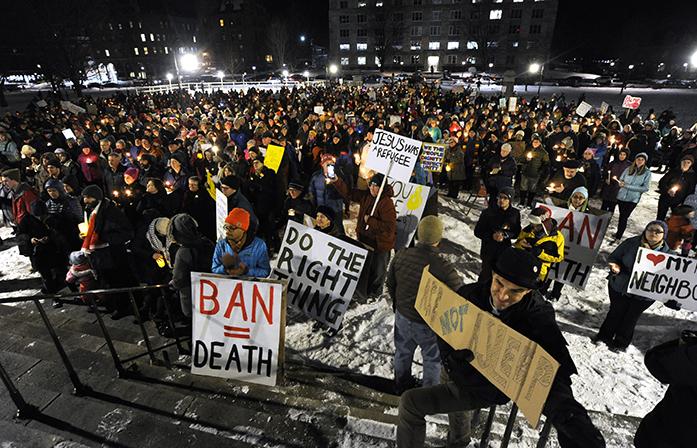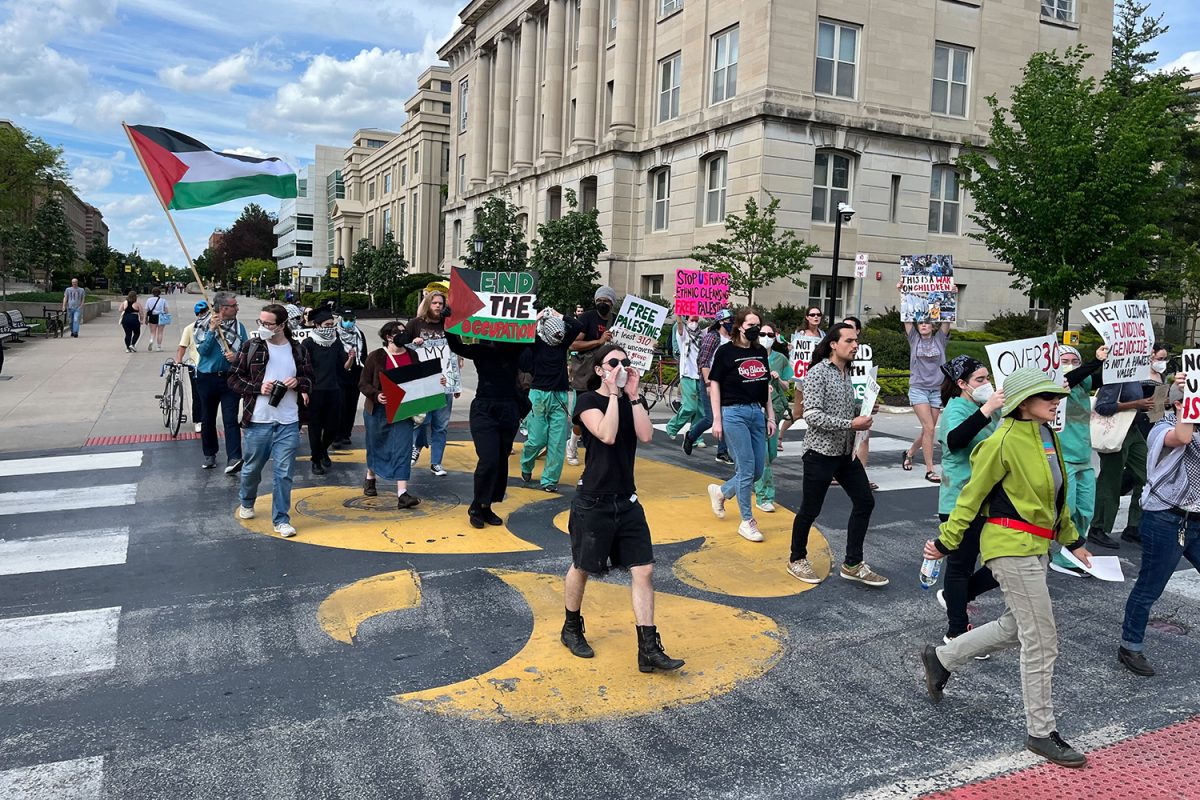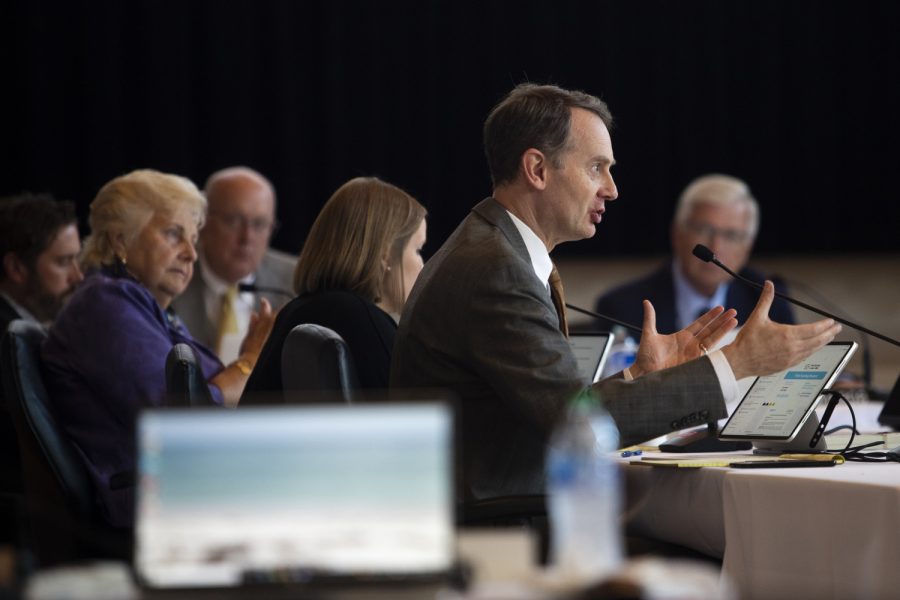By Anna Kayser
Iowa lawmakers and experts hold differing opinions on the constitutionality and effectiveness of President Trump’s executive order on immigration.
Attorney General Tom Miller (a Democrat) said this is a troublesome policy because the United States is working with Iraqis on the ground in the fight against ISIS, with the Iraqis suffering the majority of casualties. He said it may be problematic that we have now turned around and banned Iraqis from entering the U.S.
Miller also said that the U.S. has been vetting refugees since 9/11 in both the Bush and Obama administrations since then he said, terrorist attacks such as the Boston Marathon Bombing in 2013 have been mostly homegrown.
“They don’t need to declare an emergency,” Miller said.
University of Iowa political science Associate Professor Rene Rocha said that in the last fiscal year, of more than 400,000 individuals that were deported, only 21 were charged with terrorist activities. Out of those 21, zero came from the seven countries included in the executive order.
“I suspect it’ll have very little effect on keeping America safe,” Rocha said.
This executive order also could potentially be unconstitutional with regards to the First Amendment and the freedom of religion clause.
Miller said the ban creates two major concerns. One is that it is directed at the Muslim religion, and the other is that the policy set forth may favor one religion over another, he said.
Sen. Chuck Grassley, R-Iowa, disagrees with the attorney general.
“Based on the Office of Legal Counsel’s opinion, there’s no doubt of the constitutionality of it,” Grassley said.
However, Grassley said things could have been handled better with the order and that it could have been “rolled out more sophisticatedly.”
Following the implementation of this executive order, some permanent residents — those who hold green cards —were denied access into the United States because they originally came from one of the seven countries that are included in the order.
The government has taken steps since this order was implemented to correct a lot of the mistakes, Grassley said.
Sen. Joni Ernst, R-Iowa, said people have to be more clear about what this executive order means and how it is in effect.
“In our efforts to protect our nation from ISIS, we also must ensure we are not inadvertently penalizing our allies in the fight against radical Islamic terrorism — especially those who have supported U.S. military efforts in Iraq,” she said in an email to The Daily Iowan. “Moreover, we must ultimately address the underlying cause of the current humanitarian crisis by devising and executing a successful strategy to destroy our ISIS enemy.”
Trump signed into effect the executive order Jan. 27, immediately implementing a ban on entry into the United States from immigrants and nonimmigrants from seven Muslim majority countries for 90 days. These countries are Iran, Iraq, Libya, Somalia, Sudan, Syria, and Yemen. The order also suspends the U.S. Refugee Admissions Program for 120 days.







